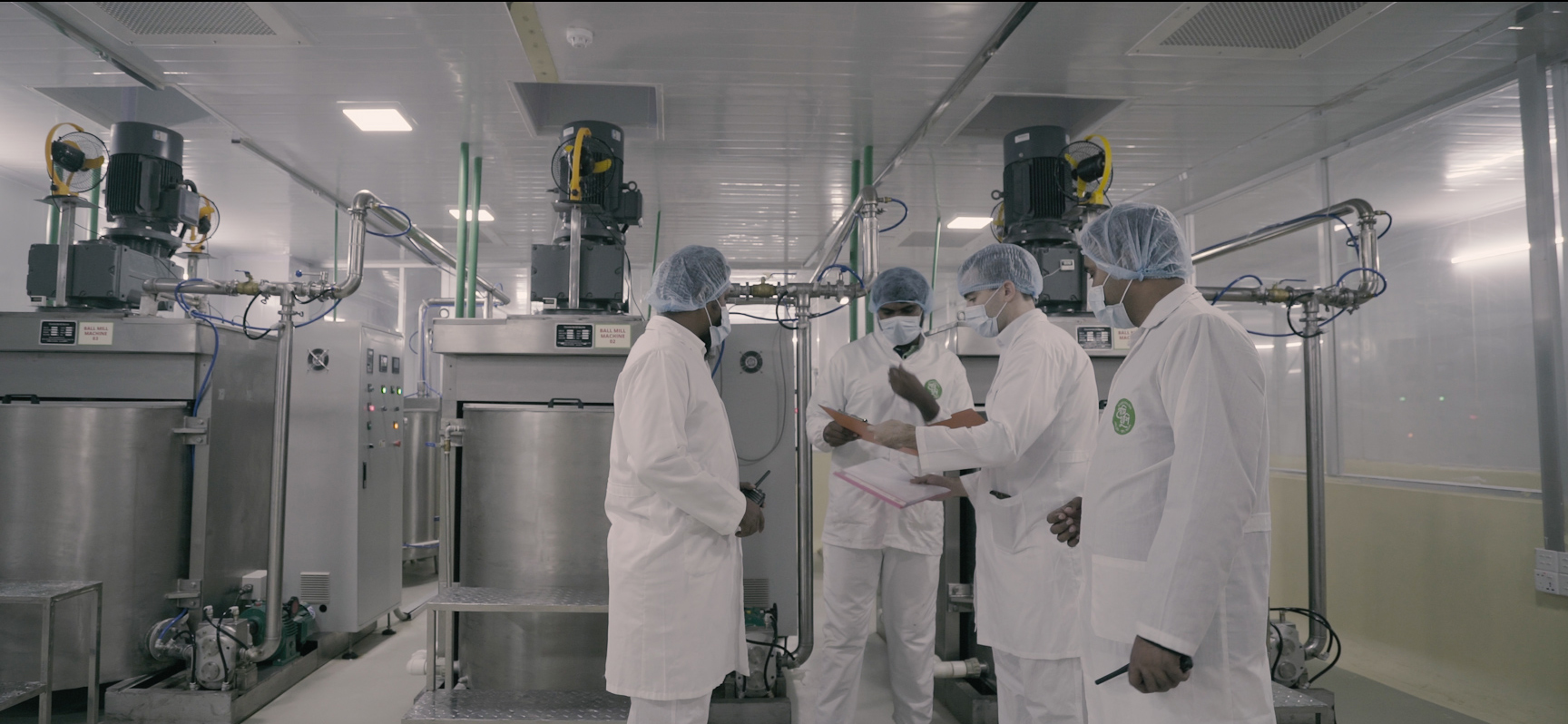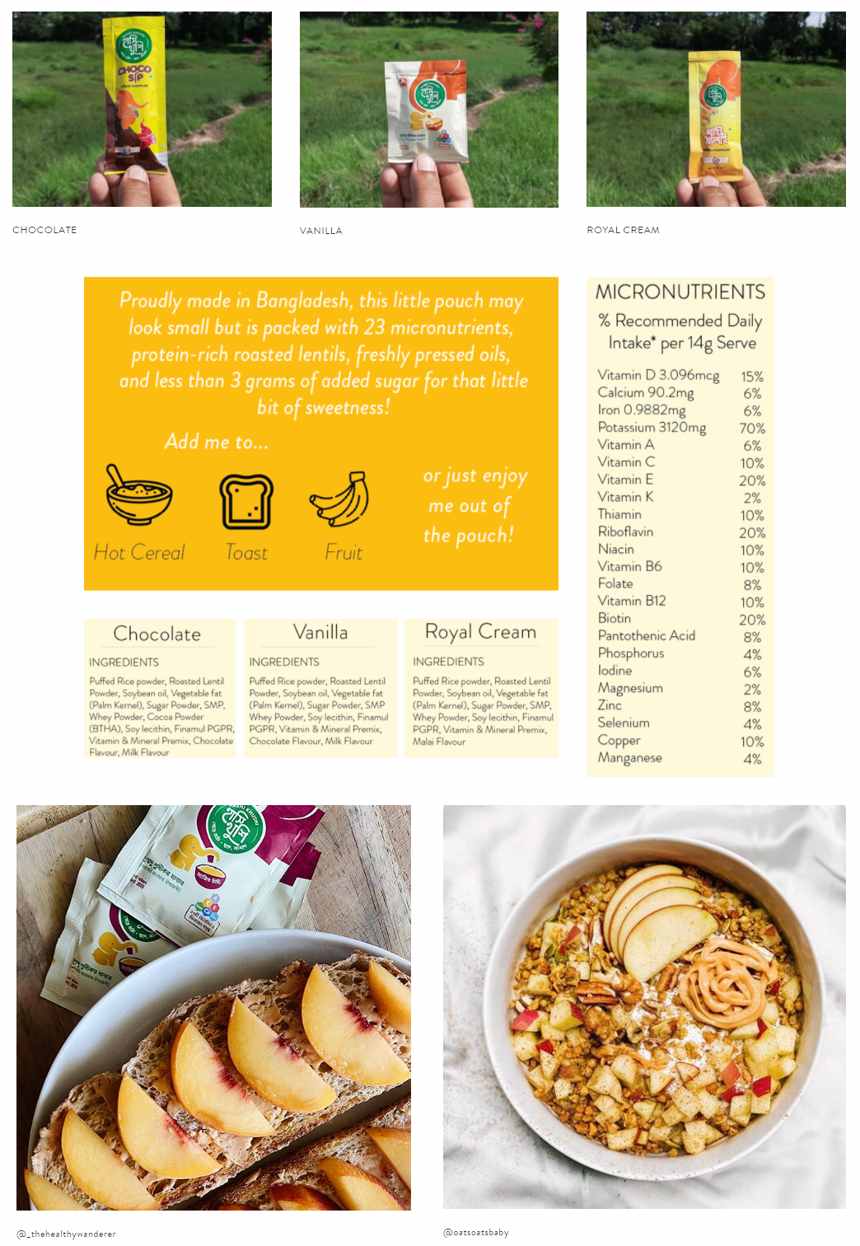
Eddie Bearnot was born and raised in New York and went to college in Minnesota before coming to Bangladesh in 2012, where from 2013 to 2015 he helped start Direct Fresh. In 2015, Eddie returned to the US to study MBA at Yale University and to be closer to his family and friends after nearly 4 years away from home. About a year into graduate school, Eddie started working on the idea of Frontier Nutrition in collaboration with his friend and co-founder Tanveer Ali in 2016.
The takeaways: once you have the taste of building things you can’t quite get enough of it and you have to keep on doing more. And you need two people to start a company - at least that’s the best approach when you aim to take on a task as difficult as building a business from scratch.
“My dear friend and co-founder Tanveer Ali and I had often brainstormed ideas for projects we could work on together,” says Eddie in an interview with FS. “With his experience helping grow his family biscuit business and investing in many others, and my background in development economics and recent experience helping to build a food distribution business from scratch, we put our heads together. We tried to identify commercial opportunities that also addressed the most pressing needs of the people of Bangladesh.”
Eddie and Tanvir came to realize that a lack of basic nutrition was a major risk to the future of Bangladesh. “Despite rising income and increased consumption of snacks, millions of Bangladeshi families lack access to affordable and nutritious foods,” Eddie says. “As a result, nearly half of the children and women suffer from malnutrition. This is the problem we set out to solve.”
Frontier Nutrition was eventually born in 2016 out of this collaboration between Tanveer and Eddie.
Building the initial operation of Frontier Nutrition
Eddie and Taveer did not go all out to execute the idea on day one. Instead, they went about planning and speaking with potential investors and spent time putting together a plan to start the operation. Frontier Nutrition is both a manufacturing and distribution business, which means it is a quite capital intensive endeavor. Eddie and Tanveer had to find solid footing before they got into the full-fledged operation.
“Tanveer and I started working on the product and business plan while I was in graduate school and starting pitching investors shortly thereafter,” says Eddie. “I took two trips to Bangladesh during my studies to conduct focus groups and field trials of our products, and to start recruiting our founding team.”
Frontier Nutrition eventually was able to bring on its first Angel investor, Shazi Visram, who had great success as a baby food entrepreneur in the US, through connections provided by a Professor at Yale. It was the first breakthrough for the Frontier Nutrition team and it enabled the team to raise further capital and speed up the operation. Since Frontier Nutrition had to build a manufacturing facility, the capital was a critical resource. “With her mentorship and support, we were able to raise the first round of capital from the DSM Venturing, the VC arm of Royal DSM, a major multinational company,” says Eddie. “We closed the round a month before I graduated in May 2017, and on June 16th I was on a plane back to Bangladesh again.”
Returning to Bangladesh, Eddie plunges himself into building the initial operation of the company. Putting together the initial operation was no easy feat for the Frontier Nutrition team. Building a factory from scratch, importing machinery, and setting up production, and distribution facilities were some of the challenges the nascent team had to deal with. Within 7 months of starting working, the Frontier Nutrition team was able to complete construction work and start making and shipping products. “We leaned on Tanveer’s expertise for this, as well as the support of a number of expert advisors in manufacturing, nutrition, and fortification,” says Eddie.
The second critical component of Frontier Nutrition’s business was setting up the distribution channel: onboarding distributors and retailers and growing consumer awareness came to be a formidable challenge for the nascent team at Frontier Nutrition. The snacks market is a competitive space in Bangladesh and Frontier Nutrition was a new name in the market. The company had to work hard to convince distributors and retailers. “We were–and still are–a new and relatively unknown company in Bangladesh. Having a well-known and trusted brand is essential to growing a business, especially in food. Our excellent quality products and unique value proposition have helped grow our brand, though there is certainly more work to be done here.”

Growing in the early days
Frontier Nutrition took an experimental approach to growth from the early days. The company decided to go to the customers, experiment, take feedback, learn, and then improve instead of doing things at once where you have little room to change course and maneuver.
“We decided to use Khulna as a test market where we could experiment, learn, and make mistakes without irreversibly ruining our reputation or growing too quickly,” says Eddie. “We spent nearly 6 months refining our systems, resolving issues with quality and pricing, and finalizing our launch plan. This period of experimentation provided some of the key insights that we used to scale up and was a relatively low-cost and low-risk strategy. We still turn to our team in Khulna to help pilot new products or strategies, and the region continues to be our largest market despite the presence in nearly 20 districts nationwide.”
An overview of Frontier Nutrition today
Over the past years, Frontier Nutrition has grown quite a bit as a business. The company currently has 20 SKUs of its own branded portfolio of products and is growing every month. You can buy Frontier Nutrition products at 20,000 outlets in 20 districts around the country.
The company is also working on partnerships with the Social Marketing Company (SMC) and the World Food Programme (WFP) to develop products to serve their customers and beneficiaries.
Between its headquarters, field force, and factory, Frontier Nutrition currently employs about 100 people.
Evolution and the future
In order to build a solid footing in the market, Frontier Nutrition has been doing both improving its existing product as well as adding new products to its product line.
“We realized early on that our core innovation — fortified lentil butter — would not be enough to sustain us,” says Eddie. “A great product is not the same thing as a great company. In order to be both commercially viable and nutritionally impactful we needed to develop a range of products to meet the needs of the Bangladeshi consumer.”
The company has been working on expanding its range of products as well as distribution coverage and manufacturing capacity.
“We have plans to increase our range of products and geographic distribution, expand our manufacturing capacity, and partner with other organizations to increase our reach, impact, and relevance,” adds Eddie.
This story is an excerpt from our interview with Eddie Bearnot, read the full interview here to learn more about Frontier Nutrition and Eddie’s lesson in building businesses from scratch.
